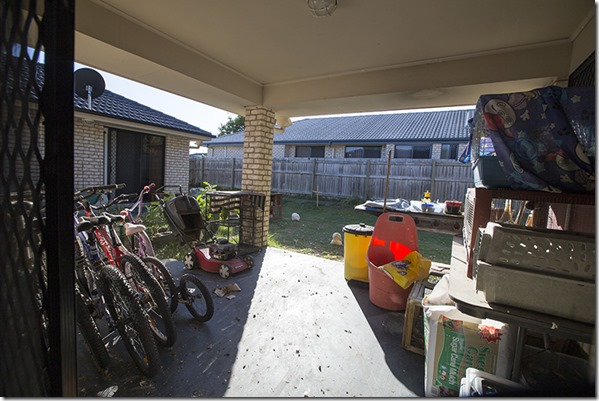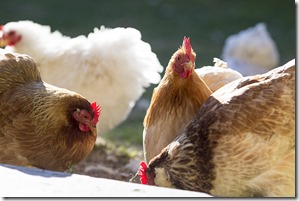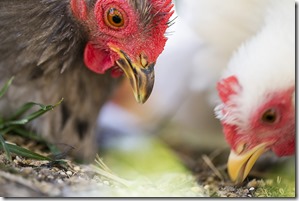faith
Free Speech, Racial and Religious Discrimination in Australia and New Zealand, or an essay on Bigotry
Tue, 19/03/2019 - 11:24am — jethroI have written this essay offline before posting it because I didn’t want to fall foul of the error I believe most posters on social media have, and that is of writing in haste, the social media equivalent of opening your mouth before putting your brain into gear. I am as guilty as the next. This essay has been exhaustively analysed and edited before posting. Of course, there will still be errors and flaws. I hope you will be polite enough to point them out to me.
I am a New Zealander by birth but Australian by residency and choice.
What is free speech?
We don’t have a constitutional right to free speech in Australia. However, there is an implied freedom of political communication. https://www.humanrights.gov.au/freedom-information-opinion-and-expression. Of course, different locations have different rules and practices, and some regimes even have great restrictions on what their populations may or may not say. I think however we may be able to agree on some common ideals, even if they are actively discouraged and even persecuted in some regimes. Here in the democratic Australian and New Zealand societies at least we believe these rights exist, and we welcome those refugees from harsh climes who escape to our freer society.
Free Speech does imply the right to criticize but not to engage in violence, to disagree but not to hate, to stir up action against opposing schools of thought but not to incite violence as a method of protest. If we consider the act of war as the failure of diplomacy, then equally demonstrating with violence is akin to a failure to communicate.
What is not allowed is Race discrimination or religious discrimination.
The Australian Human Rights Commission Act 1986 defines discrimination as:
(a) any distinction, exclusion or preference made on the basis of race, colour, sex, religion, political opinion, national extraction or social origin that has the effect of nullifying or impairing equality of opportunity or treatment in employment or occupation;[7]
This goes every which way you can think of. Do you ever look at someone with a different skin colour and feel repulsed, or even just “different”? If you see someone wearing a turban, headscarf, cross on a necklace or wiccan pentagram does that make how you thought of them different than if they hadn’t been displaying their faith openly?
If someone makes a post on a social media platform that exposes their religious belief, including atheism or agnosticism (lack of belief), does this make your reconsider how you would approach them for a job, or as a prospective employee? What about as a customer or a purveyor of their services?
Do you even just think of “them in that suburb, those who frequent that restaurant, or those of that skin colour or those who practice that faith. I think if so you are dangerously close to the point where you discriminate.
What is bigotry?
Recognising a distinction is fine. We all associate with tribes, be they genetic, familial, faith or activity based. Discriminating based on tribal association is the first step towards intolerance. Being intolerant of other people’s opinions and ideas based on these “artificial” discrimination points is bigotry.
Bigotry is defined as an intolerance towards those who hold different opinions. From https://www.dictionary.com/browse/bigotry “stubborn and complete intolerance of any creed, belief, or opinion that differs from one's own.”
As I write this, I must also ensure that I recognize and change any motives or thought patterns I have that demonstrate bigotry. Often bigots are unaware of their bigotry, having learned it from an early age through mimicking their parents and grandparents’ intolerances towards others, or maybe as part of a culture they are currently enmeshed in and do not even recognize.
Bigotry can I think be seen easily in the social media world in “us versus them” type posts. As soon as you see a group of people being different (even if they are legitimately actually different) and then (this causality is very important) make a distinction based on that difference you have taken the first step to wards bigotry. The actual moment comes when you make the comment, post the post, reshare the article or meme, that expresses that distinction and separates the two types of people and essentially classes one as higher than the other. You my friend, have just shown intolerance of someone else’s views based on discrimination and you have just become a bigot.
Congratulations!
There is a road to recovery. Reconsider your intolerance, review your assessment based on the discriminatory difference and view that person as you would your mother, sister, brother auntie or child. Now does it matter what they do, look, or act differently?
What is acceptable?
Discourse, objections and differences of opinions are vital to communication and our humanness. It is part of what makes us human – our uniqueness is expressed visually, genetically, spiritually and intellectually. Of course this is fine. But to call on others to discriminate because of these differences is to both be a bigot and incite others towards the same. And that culture is not acceptable.
What I have also come to realise in the last few days is also not acceptable, is to idly stand by while others engage in bigotry online and in real life. Bigots can change. Your intolerances can be unlearned. You can become friends with a someone from another faith, even an opposing faith. I am a Christian, yet I have friends who are Wiccans, Muslims, Buddhists and atheists. Some even call me friend back!
My challenge to myself and others is to call out intolerant attitudes and speech. Don’t stand idly by and in doing so provide tacit approval for what is essentially hate speech.
Should I cull my “friends” list?
I have thought about this quite a bit. Because my business involves a lot of networking and accepting friend requests from all sorts of people, I have never culled my lists. I have blocked a couple of extremely offensive people, but that is it. I am not sure that I want to cull.
Don’t sit on the sidelines, instead Act
What I want to do instead is make a polite request.
If you make a post that I see and it is intolerant of others, racist, extremist, or degrading of others because of their religious choice, I will comment on it with a link to this article, for you to read and reconsider your statement. It is up to you to deal with it in a mature manner. Recognise your bigotry and change or remain intolerant and have a go at me for daring to suggest you might be bigoted.
I’m going to operate on a one strike rule. You get once chance. If you repeat it, continue to justify your position, argue that you are not a bigot while still sharing intolerant memes, comments and posts, I will block you. If you agree with my essay, then I challenge you to also do the same. Call out the haters. Give them a chance to learn and become compassionate. Then cut them from your lives if necessary.
Conclusion
Intolerance towards others is learned, it’s a behavioural habit, not a genetic bias. It can be unlearned. We can learn to think more rationally, to recognise errors in our thought patterns, attitudes towards others and discriminatory practices and behaviours.
The Christian religion is often misunderstood, and I am not referring to the organised church hierarchies most would associate with the word Christian. Instead I am talking about the personal practice of faith. I think it can be summed up in two statements that Jesus made as quoted from Matthew 22:37-39. The first is spiritual looking toward a deity from a personal point of view. “Love the Lord your God with all your heart and with all your soul and with all your mind.” And the second is like it: “Love your neighbour as yourself.”
Bigotry is essentially the opposite of this. My response to counter bigotry is to learn how to practice the second statement. That comes after learning how to practice the first.
Whatever conclusion you come to, I would be interested in your genuine comments.
Where I Live
Fri, 07/08/2015 - 9:44am — jethroMy morning ritual is to make a coffee at the kitchen counter with a window looking out over our backyard. Usually I am the first up and the house is still, filled only with the sounds of animals other than humans. Peeping of small hatched chickens inside, the raucous morning squawk of my Amazonian parrot, and the clucking of hens right outside the window. Sometimes my wife is up first and out in the yard tending to her chickens, and sometimes my youngest daughter is up (often she rises to the sound of the coffee machine) and then I am bombarded with her inquisitiveness.
i gaze out the backdoor and i see the comforts of home. The familiar clutter of bikes, the BBQ lawnmower, birdcages and chickens.

Zooming in as the chickens come for their food we see each has a personality, a pecking order and they are “so adorable” as the girls say.


This is where I live.
My family is my familiar clutter, my girls are my background noise. Yet I need to remember to zoom in. Focus on the individuals amongst the crowd and noise, listen to the request for love an attention and provide that as a husband and father. Sometimes I neglect this. That is not what I want to do. This reminder is good.
And this morning my youngest (the teens are all in dreamland) was excited to show me her new rip stick skills so out in the middle of the street I lie with my camera – giving her attention.



This is where I live.
This blog is part of a blog circle. Our theme for this month is Where I Live. Please come back this week, and read the posts of the others in my circle:





Recent comments
10 years 37 weeks ago
10 years 37 weeks ago
10 years 39 weeks ago
10 years 39 weeks ago
10 years 39 weeks ago
10 years 39 weeks ago
10 years 39 weeks ago
10 years 39 weeks ago
10 years 39 weeks ago
10 years 39 weeks ago